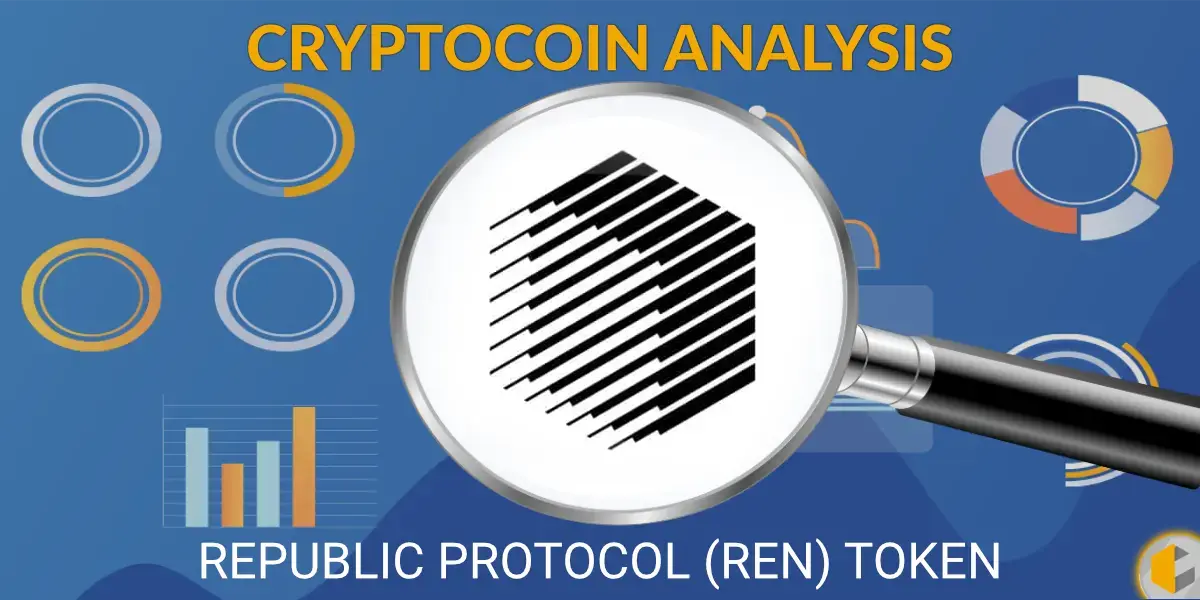
- Massive market, and great potential to dominate in there.
- Limited token holders will limit supply on markets.
- Well thought out roadmap, with an MVP upfront and ongoing expansion after that.
- Inexperienced team, all from academia, may lack a breadth of experience.
- $75m USD valuation is high, considering there is no proof-of-concept available
Republic Protocol is an open-source decentralized dark pool exchange that provides cross-chain atomic trades over the Ethereum and Bitcoin networks. Powered by a variant of multiparty computation (MPC) and the REN token, miners within the protocol can perform computationally expensive order matching and execution without revealing the underlying trade. This property creates a trustless trading system for large block orders for ERC20, Ethereum and Bitcoin pairs to be executed without price slippage or front-running.
Republic Protocol Token ICO Fast Facts
- ICO Crowdsale Start Date: January 2018
- Maximum Discount: 15% (private sale)
- Platform: ETH
- Amount Raised (Valuation): 35,000 ETH (with a 60.2% crowdsale, values the company at 58,140 ETH or about 75m USD at today’s exchange rate)
Republic Protocol Token Utility
Republic Protocol’s primary target market is the mega-whale niche of the cryptocoin industry. These are the large investors and institutions who need to move cryptocoins around without having them affect the general market. Consider a large (progressive) bank with billions of dollars worth of ABC token. If they were to convert this to XYZ token at a regular exchange, it would have a drastic effect on the value of that token in that exchange. Dark pools are off blockchain, peer-to-peer exchanges which allow mega-whales to do direct transfers with each other. Using a trust-less approval mechanism, it ensure both parties are bound to honour the agreements of the exchange (such as price and quantity) without either party necessarily knowing each other.
This system of off market exchanges is actually quite popular, with 10% to 20% of current stockmarket equities exchanged in this manner in both America and Europe at the moment. Given that Bitcoin, Ethereum and ERC-20 tokens represent over half a trillion USD today, if they could capture even just 10% of this market, that would be $50b.
The actual tokens do have a utility and they would be expected to increase in value as the platform increases in use. Tokens are required to be paid by the parties exchanging cryptocoins and will be used as rewards for the miners providing the cryptographic verification of the transfers. As the platform gets used more, more of these tokens will be required to be bought and spent on the platform to have orders processed. This creates a need and a demand for the token itself which is a fantastic proposition for investors.
The process is extremely smart. It will allow two people to exchange tokens without any knowledge of the other party. It does this by having their secrets verified by external parties (the ‘miners’). Even these miners don’t receive the full secret though, as multiple miners are used. Each miner will only receive a cryptographic test that will reveal part of the result. So no single miner could view or alter the combined final results. For their efforts, the miners will receive a percentage of the token fees paid by the people exchanging tokens.
Republic Protocol Token Team
Led by CEO Taiyang Zhang and CTO Loong Wang, the founders are young but motivated individuals. I was excited to see that whilst the company is based out of Singapore, these two are based in Canberra, my old home town. Both have a lot of academic experienced and have also worked with each other at Neucode. Neucode is a software and web development agency specializing in AI, high-performance systems and interface design. It is unclear how successful this business was as little information could be found about it. It has possible that it is no longer operating.
More recently, Taiyang co-founded Virgil Capital, a quantitative cryptocoin trading firm. This demonstrates a solid background into AI, machine learning and the broader cryptocoin industry which aligns well with this project.
The co-founders already have a team of software developers and blockchain experts working with them. This team is equally young and most know each other from studying together at the Australian National University (ANU). It is a little disappointing to see such a bias to the team with no technical team members coming from outside of academia.
The advisers are also predominately from academia with a Professor of Law, a university teaching assistant, research assistant and a PHD mentor filling this role. While they do come with a bit more experience (including Loi Luu who co-founded the Khyber Network cryptocoin), I would have preferred to seen more people from another sector to broaden the teams experiences.
The team however are attracting a lot of big money from renown investment funds, such as Signum Capital, CIMB, Saxo, Signal Ventures, Panterra, Blockchain Global, Blockchain Capital, Consensys etc. This demonstrates significant confidence from institutional investors.
Republic Protocol Token Roadmap
The team have a very reasonable roadmap laid out. With Q1 2018 assigned to getting the basic core functionality set. This includes atomic swapping contracts for BTC and ETH based tokens and node registrations set up. Q2 is the launch of the testnet and trader terminals to begin testing the project on the blockchain. Mainnet deployment will occur in Q3, along with node configurations being made available. In Q4 and beyond, they want to scale out their solution buy supporting more coins (such as Litecoin) and atomic swap methods (such as lightning and raiden). Work will also be done to support a higher frequency of trading.
Overall, this is a reasonably paced project timeline with no noticeable issues at this stage. I am impressed that while they are starting with BTC and ETH, they are thinking ahead and would like to incorporate other altcoins as well.
What I would have liked to have seen them do, is to target a larger sector of the cryptocoin market. Implementing additional privacy controls or acting as a truly black market, where privacy sensitive individuals could move cryptocoins between chains without leaving a traceable link between sender and receiver. I believe the volume of individuals interested in this would further promote the platform and its tokens to a much broader audience then just institutional investor circles.
Republic Protocol Token Value
A $75m project valuation is perhaps a little high, given the early stage the project is at, and the youth of the team. This is a post university project by a very inexperienced team. I think they would have struggled to receive this valuation from a standard private investment or seed funding arrangement.
Having said that, their whitepaper demonstrates a clear and in-depth knowledge of the mathematical and computer science technologies required to complete this. They are using academically sound methods and prior research to solve an actual problem in the real world. If they can achieve their stated goals, they will fill a very large gap in a potentially trillion dollar industry by the end of the year.
For this reason, I believe the valuation offers some incentive for early investors. I would however, preferred to have seen them at the proof of concept or working prototype stage already.
Republic Protocol Token Transparency
There is not much information publicly available about this ICO just yet. They are still seeking private investment and strategic partnerships at this stage of the ICO.
I do have a feeling that this may not reach a public sale, or that the public sale will be to pools of investors. This would be to keep their community overheads down. While this is the way I’d like to see it happen, where the product does all the talking, I do wish they’d have a bit more publicity in order to build a bit of hype before listing on an exchange.
Republic Protocol Token Distribution
Distribution of funds is broken down quite clearly. 60.2% will be sold to investors, with just 9.9% given to the founders, team, advisers. This is a very well considered plan and is recognition of the early stage and inexperience of the team. I applaud the project for not getting too greedy for themselves in this regard. 10% will be assigned to partnerships and ongoing community development with the final 20% kept in reserve for use as required.
Overall, I think this offers excellent value. This distribution absolutely shows that the team are not in it for the money and that they have a long term view of the project.
Republic Protocol Token Summary
Republic Protocol is targeting the whales of cryptocoin. It will enable discreet exchange of cryptocoins and tokens using a range of trustless mechanisms and atomic swapping methods. REN Tokens have a strong utility in their solution and are expected to rise in value as the demand grows. The team is comprised of individuals from academia and are bringing well researched methods and seeking peer review of their product. I expect there to be limited tokens available publicly as investors and their target audience (whales) jump on this investment opportunity.
Crypto Coin Disclosure
The author holds a small amount of Republic in his portfolio.
No payment or private consultation was sought for this article.
Read about our transparency requirements.
Editor-in Chief
Related Posts
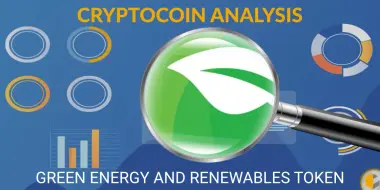
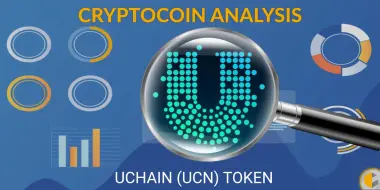
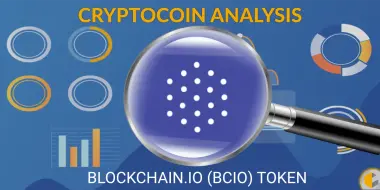
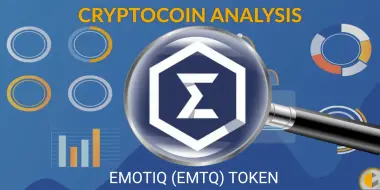
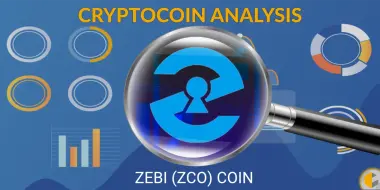
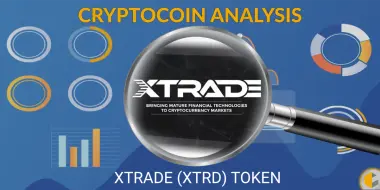
Subscribe to our newsletter!
Information




